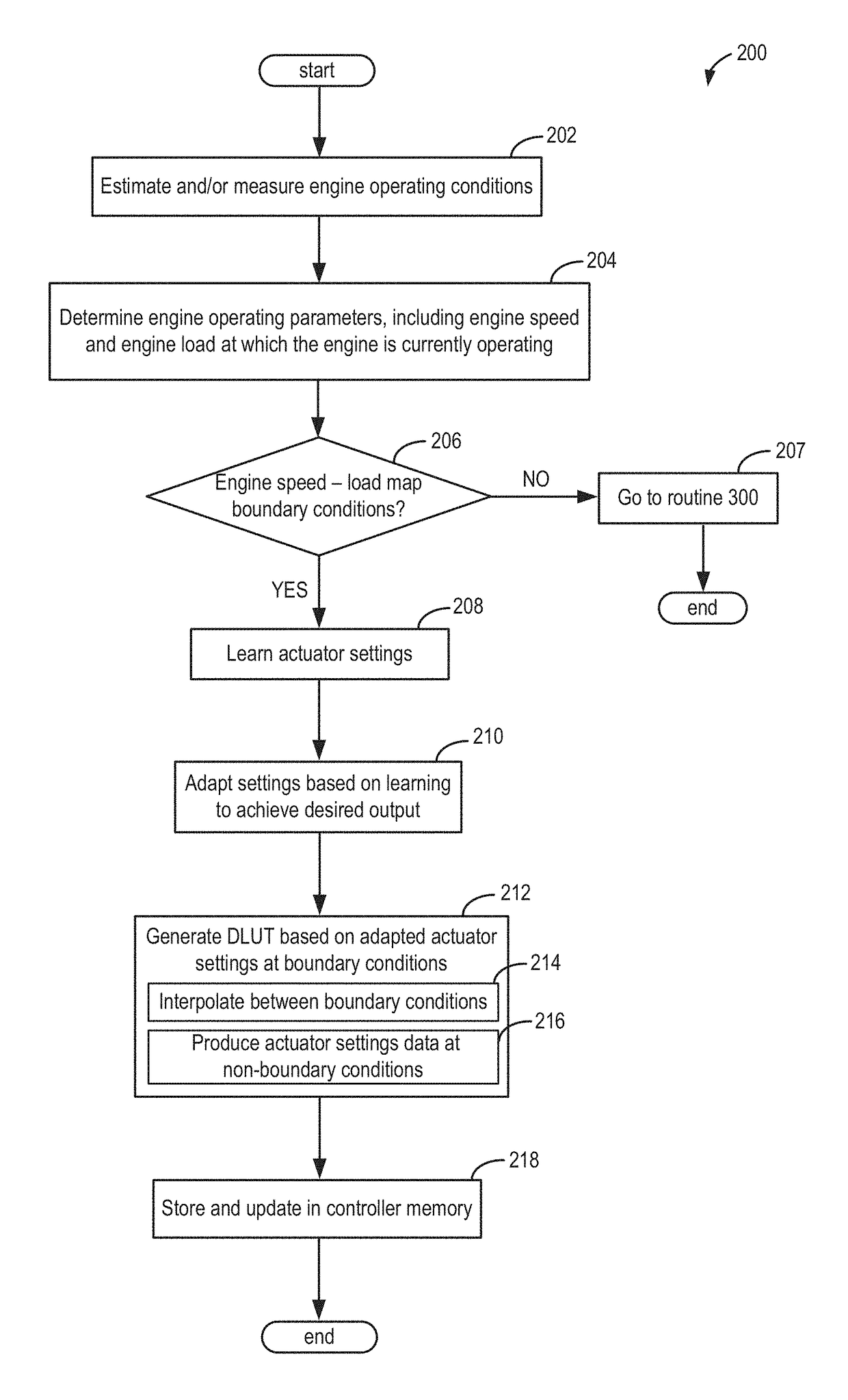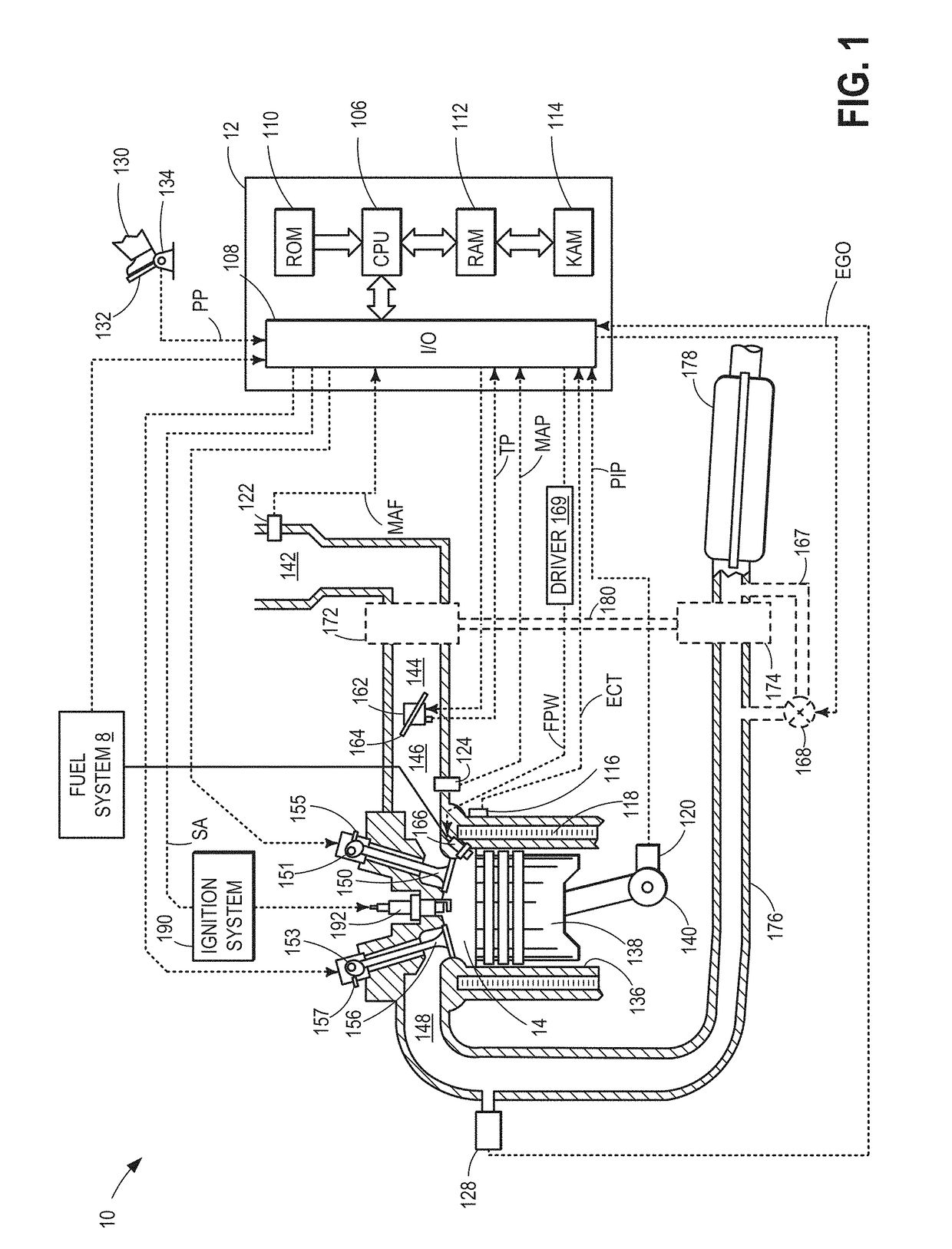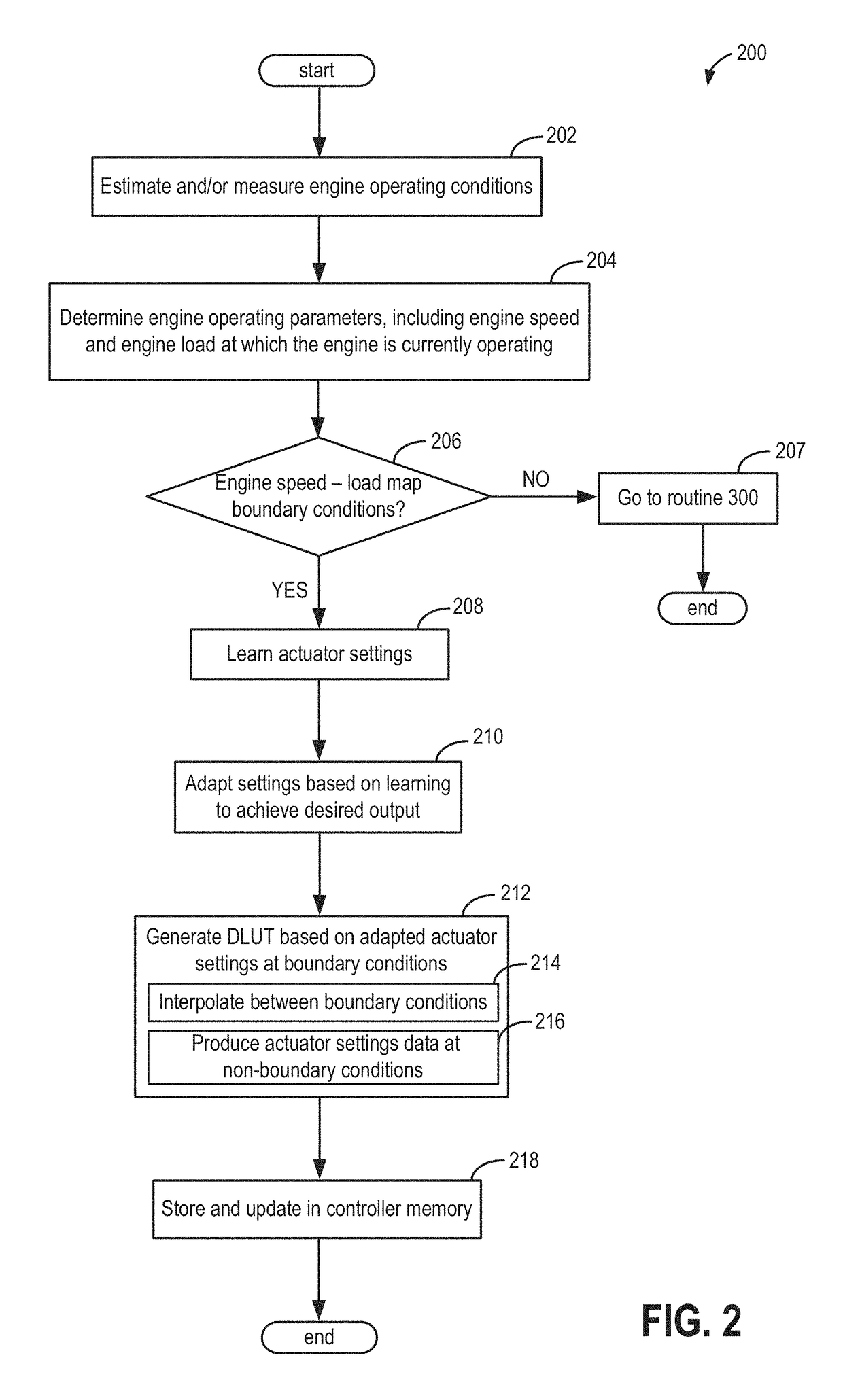Powertrain control system
a technology of powertrain and control system, applied in the direction of electric control, ignition automatic control, machines/engines, etc., can solve the problems of increasing costs, increasing exercise time, and affecting so as to improve the efficiency of the engine, increase the number of actuators, and improve the effect of engine efficiency
- Summary
- Abstract
- Description
- Claims
- Application Information
AI Technical Summary
Benefits of technology
Problems solved by technology
Method used
Image
Examples
Embodiment Construction
[0017]The following description relates to a method for learning actuator settings in an engine system, such as the engine system of FIG. 1. Actuator settings may be learned and adapted when the engine operates at boundary conditions of an engine speed-load map (FIG. 2). A dynamic node look-up table (DLUT) may be generated via an engine model in parallel to the adaptive learning of actuator settings. The DLUT may include generating actuator settings for engine conditions other than speed-load boundary conditions. Accordingly, when non-boundary conditions arise during real time engine operation, actuator settings may be determined from the DLUT (FIG. 3). In an example described in the present disclosure, an indirect adaptive control system (FIG. 4) may be used to command a selected group of conditions on the speed-load map, specifically, engine loads at the boundary of the speed-load map (FIG. 6). Actuator settings (FIG. 5) that provide the desired outputs of engine load may also be ...
PUM
 Login to View More
Login to View More Abstract
Description
Claims
Application Information
 Login to View More
Login to View More - R&D
- Intellectual Property
- Life Sciences
- Materials
- Tech Scout
- Unparalleled Data Quality
- Higher Quality Content
- 60% Fewer Hallucinations
Browse by: Latest US Patents, China's latest patents, Technical Efficacy Thesaurus, Application Domain, Technology Topic, Popular Technical Reports.
© 2025 PatSnap. All rights reserved.Legal|Privacy policy|Modern Slavery Act Transparency Statement|Sitemap|About US| Contact US: help@patsnap.com



